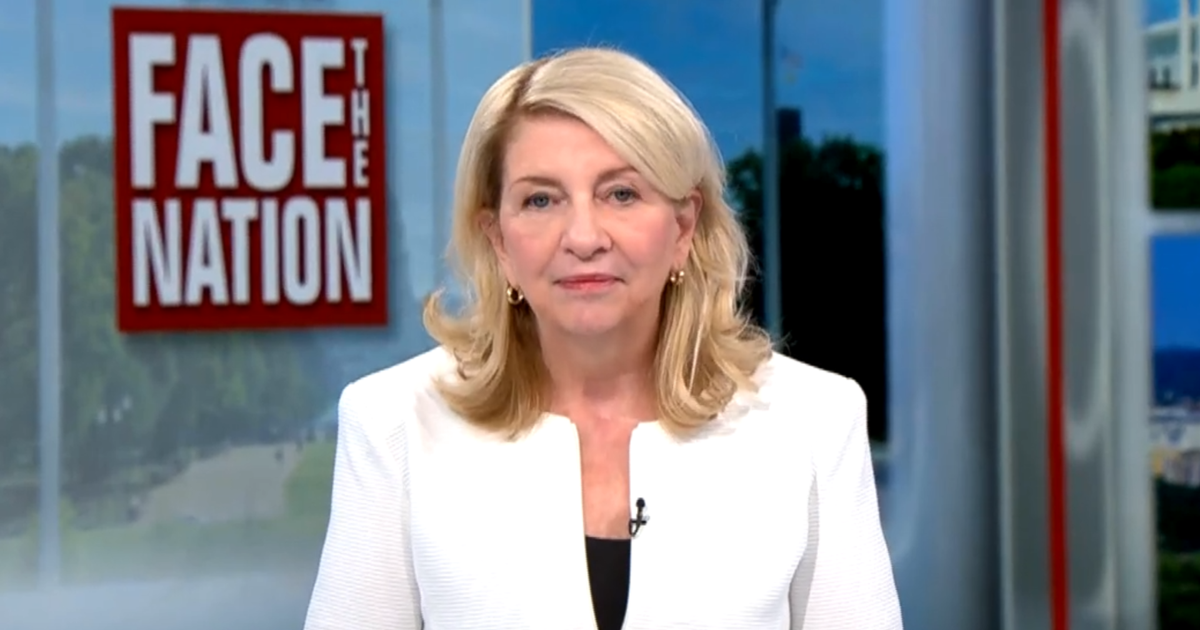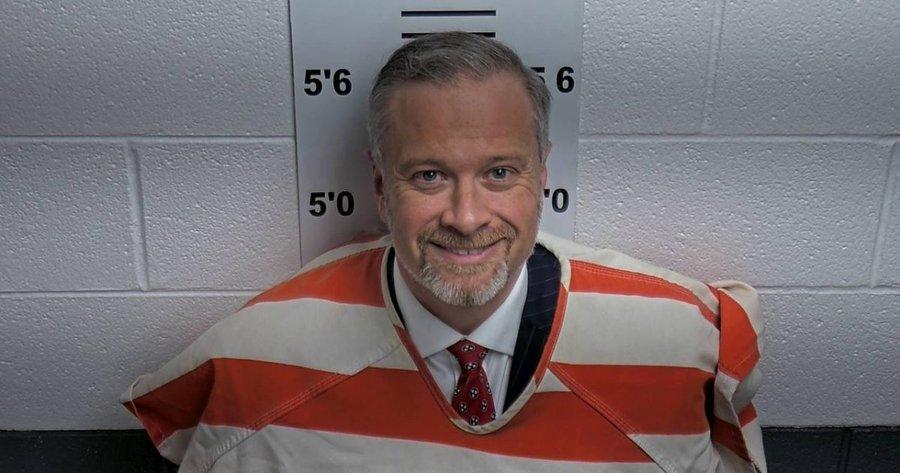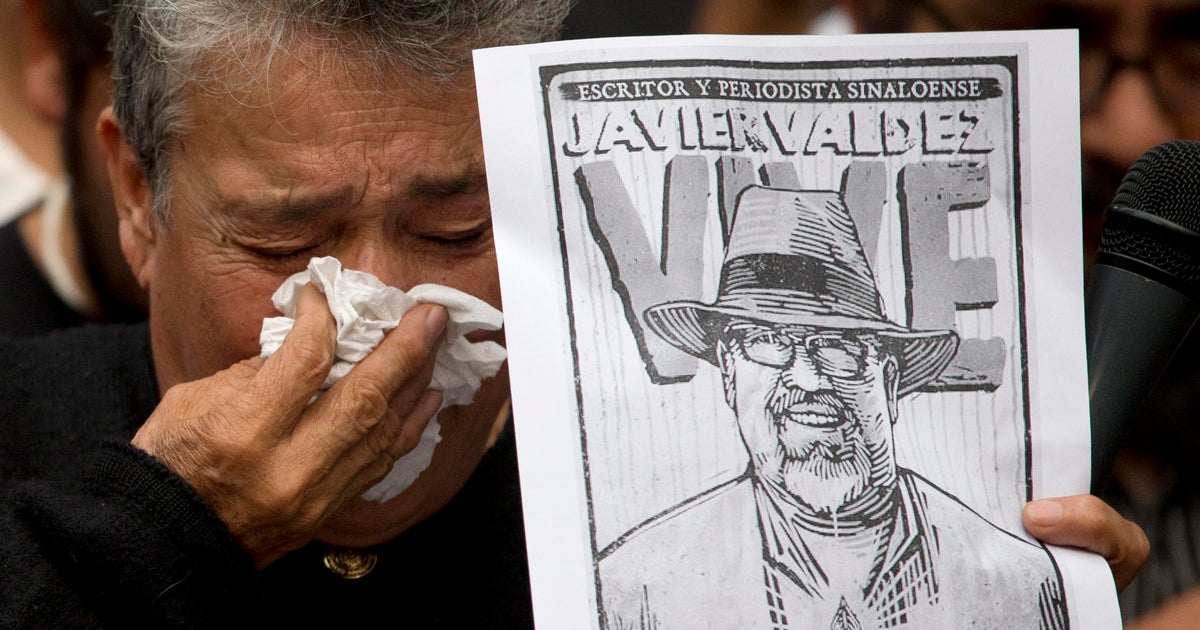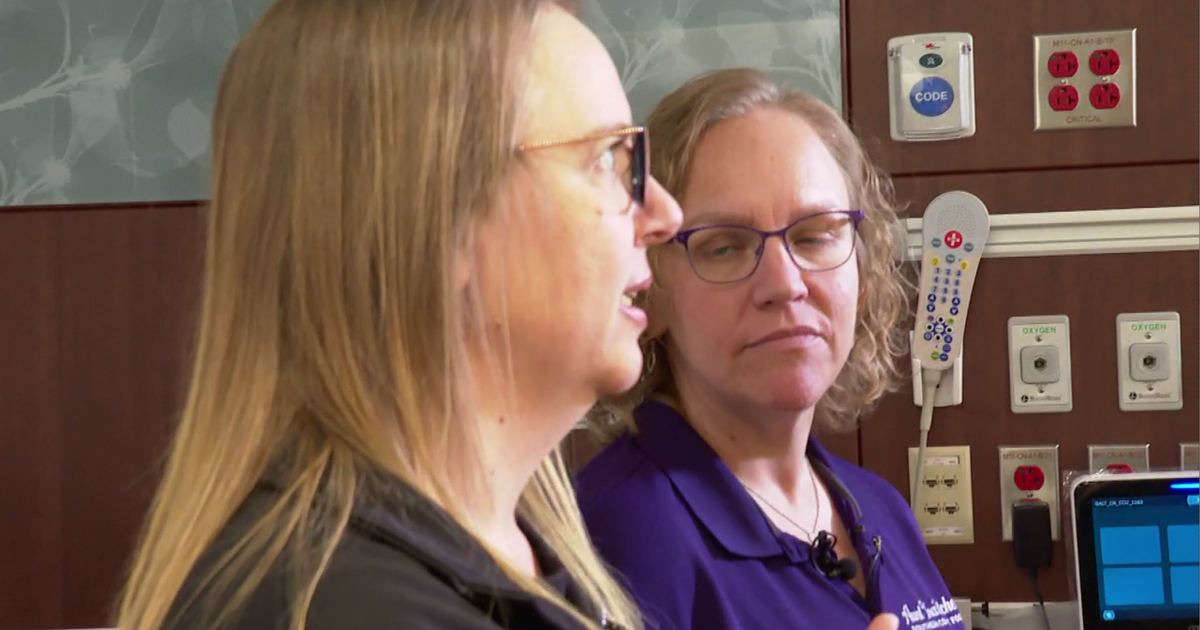CBS News
Transcript: UNICEF executive director Catherine Russell on “Face the Nation,” April 28, 2024

The following is a transcript of an interview with UNICEF executive director Catherine Russell that aired on April 28, 2024.
MARGARET BRENNAN: We want to take a closer look at the growing humanitarian crisis when it comes to the world’s children. Catherine Russell is the Executive Director of UNICEF and she is just back from Israel and the West Bank. It’s good to have you here.
CATHERINE RUSSELL: Thanks Margaret, good to be here.
MARGARET BRENNAN: I know you met with some of the families of Israeli children who are still being held hostage. There’s a one-year-old, there’s a four-year-old. And you met with Israeli officials about access for aid going into Gaza. Did you get any good answers?
CATHERINE RUSSELL: Well, we got some good answers, which is that I think a growing awareness of- of how critical it was for us to get more aid in and specifically what we needed more access points, better security. You know. I’m certainly not the only person who made those arguments and advocated with the Government of Israel. But we have seen a little bit of an improvement in Gaza. So that’s a positive that came from it. Obviously, the needs still far, far outweigh what we’re able to do, but at least we’ve seen some progress.
MARGARET BRENNAN: You also went to the Palestinian West Bank and 2023 was the deadliest year for children in the West Bank since they began monitoring at the UN in 2005. With all of the attention on Gaza, tell me what’s happening to kids in the West Bank right now.
CATHERINE RUSSELL: Well, it’s- you know, the first day I met with, as you said, the hostage families. Second day I- I was on the West Bank and heard they are about, excuse me, the challenges children face every day just trying to get to school, the barriers they face, the difficulty in sort of moving around the checkpoints, all the rest of it–
MARGARET BRENNAN: –Israeli checkpoints?
CATHERINE RUSSELL: And as you said, yes, and as you said, there is an increase in violence. And I think just in this year alone, there have been 40 children- Palestinian children killed, two Israeli children killed. There’s just an uptick in violence and it’s- as always children who are really impacted by that. You also mentioned, you know, I met with the- the hostage families. I mean, they’re devastated by what’s going on. Some children still being held, others who are traumatized, either by being held themselves, or by seeing family members killed and hurt. And I- I think I would just say that overall, I came back feeling like, there’s just so much pain and misery everywhere you look. And it’s really unfortunate to see it and just praying for a better- better day for everyone in the situation.
MARGARET BRENNAN: The UN says every 10 minutes a child is killed or wounded in Gaza. I mean, that just hits you in the chest when you hear that.
CATHERINE RUSSELL: That’s a shocking number.
MARGARET BRENNAN: It’s horrific.
CATHERINE RUSSELL: It is what’s happening.
MARGARET BRENNAN: And the US called this week for an investigation of this mass grave that was just found in Gaza, of hundreds of people. Were there children there? What do you know?
CATHERINE RUSSELL: You know we don’t- UNICEF doesn’t know much about that, honestly. I think that I would say a couple things. One, there needs to be a full investigation of what happened. And I think that, at some point, will certainly, I hope, take place. And second, to me, it argues, again, for the importance of having international press in Gaza. I- I- I say this over and over again because you have disputes about what has actually happened, what’s going on. And I think not- you know, look, there are incredibly brave Palestinian reporters and press people there who are doing an incredible job. Many of them have- have suffered so much, people have been killed. I think having the international press in there is also really important. And I hope that that gets that- that changes sometime soon and international press folks can get in, really make their own assessments of what’s going on.
MARGARET BRENNAN: And if the Israeli government allows for it, I think, a lot of news organizations would absolutely go for it.
(CROSSTALK)
CATHERINE RUSSELL: – absolutely should be there, they should be seeing what’s happening.
MARGARET BRENNAN: The US military, as you know, is setting up this port that’s supposed to be open sometime in May. We had Doctors Without Borders chief on recently. And she said to me, there’s “a slow motion massacre” of people suffering from deprivation of food and water for six months in time. “You can’t drop lentils from the sky” is what she said. You need a mass medical response. Is there any plan in place to do this to revive some of these children who are starving to death? And will it come before there is an invasion of Rafah?
CATHERINE RUSSELL: Well, let me say a couple things. One, the humanitarian situation, especially for children, is incredibly worrying everywhere. We know in the north, where it’s been very difficult for humanitarians to get in with food. And as you’re pointing out, children in particular, need what we talked about as therapeutic feeding, right? So they need plumping up or sort of interventions by medical professionals. So it’s not, as you say, just dropping in food. That’s not enough. We need to do more for- for little children. It is definitely not anywhere near where it needs to be. I think that the you know, the idea of the port, the idea of air drops, you know, all- look we support is getting much- getting as much aid in as we possibly can. But the truth is, the- the most important thing is getting more and more in through road access. That’s the best access. It’s the safest access. It’s the best for humanitarians, and it’s the easiest way for us to actually get around. Having said that, it’s very difficult to do that for so many reasons, not least of which the roads are all torn up. Right? We have security issues. So it’s a challenging – is a challenging sort of array of problems. And I think we need multiple ways to try to respond to it.
MARGARET BRENNAN: Please tell me what is happening in Sudan, which is the biggest displacement crisis in the world for children right now.
CATHERINE RUSSELL: Sudan is terrible for children. It is, as you say, the largest displacement, millions of children are on the move. Almost no children are in school. I think 90% of children are out of school. There’s incredible violence, including sexual violence that children are, are suffering and witnessing. Children are suffering from malnutrition. It’s absolutely a devastating situation, and we all need to pay more attention to it, for sure.
MARGARET BRENNAN: And these are the next generations that we are talking about.
CATHERINE RUSSELL: You know what, Margaret, that’s the thing about working with children. Right? It’s like on the one hand, they’re so vulnerable to everything that happens to them and you know, you mentioned Rafah, I mean, if- if there’s an incursion into Rafah, that’s unimaginable to imagine what- what the violence will be like and what how they will suffer. But whether it’s in Gaza, or in Sudan, or Haiti or so many other places, children are suffering so much, and we all talk about children are the future. Well, okay, then we need to protect them. We need to make sure that they are educated and healthy, and have some decent future ahead. And that’s critical for them. And it’s critical for their countries, and it’s critical for all of humanity.
MARGARET BRENNAN: Catherine Russell, thank you for your insights today. We’ll be right back.
CBS News
Tennessee DA accused of firing multiple times at fugitive, hitting home with woman and her 3 children inside

A district attorney in Tennessee is facing a reckless endangerment charge after shooting at a fugitive several times and hitting a home that had a woman and her three children inside.
The Tennessee Bureau of Investigation announced the grand jury charge Monday against District Attorney Chris Stanford. His district covers Van Buren and Warren counties.
The indictment says that as the incident unfolded in Smithville on Nov. 21, a bullet Stanford shot from his handgun went through a front porch patio chair, through an exterior wall and into the living room wall of the home. The woman and children weren’t hurt.
Smithville is about 60 miles southeast of Nashville.
The indictment says that Stanford fired the shot “unlawfully, intentionally and recklessly.” There was no immediate threat to him or others, he wasn’t aiming the handgun, and “just held it out and shot” without using the gun’s sights, the indictment adds.
Following his indictment, Stanford surrendered at the DeKalb County Jail and was released after posting a $10,000 bond, TBI said. A message left with Stanton’s office was not immediately returned Tuesday.
The Warren County Sheriff’s Office described the circumstances leading to the incident last month. In a social media post, it said authorities were pursuing suspects after finding three dead bodies at a house and at an adjacent building.
The suspects were sighted in DeKalb County, the sheriff’s office said. One of them was taken into custody without incident. Stanford and other law enforcement officials chased the other suspect, who was a passenger in a car, the office said.
While trying to help the suspect flee, the driver struck a homeland security officer with the car, the sheriff’s office said.
In a statement last month to CBS affiliate WTVF-TV, Stanford said he fired shots in response to the homeland security agent being hit. No one was shot when Stanford fired his gun. The homeland security officer was injured and taken to the hospital, according to a social media post by District Attorney Bryant Dunaway.
“The vehicle then drove toward me and others, accelerating quickly. I fired my service weapon in defense of myself and others at the scene. Based upon my training and the circumstances that presented themselves, I believe my actions were necessary and justified,” Stanford said.
Stanford also told the news station he has a state law enforcement certification to carry his weapon at all times.
The two suspects in the three deaths were taken into custody and charged with criminal homicide, while the driver, also taken into custody, faces felony evading arrest and aggravated assault charged, according to the sheriff’s office.
Stanford will make an appearance in court on Jan. 7, WTVF reported. Since he showed up at the scene and fired his weapon, he is now a witness and cannot prosecute the triple murder in his own county, the station reported.
CBS News
Accused mastermind of journalist’s murder wanted by Mexico — but U.S. has called him a “protected witness”

Mexico has asked the United States to extradite the suspected mastermind behind the murder of journalist Javier Valdez after he was arrested on drug charges, the attorney general said.
Damaso Lopez Serrano — who the Justice Department says is known as “Mini Lic” — is accused of ordering the 2017 killing of Valdez, an award-winning journalist and AFP contributor who covered the narcotics trade.
The alleged former high-ranking member of the Sinaloa Cartel was arrested on Friday in Virginia on charges of trafficking fentanyl. Lopez Serrano is the son of Damaso Lopez Nunez, who launched a struggle for control of the cartel following the arrest of its leader, Joaquin “El Chapo” Guzman.
Mexico’s Attorney General Alejandro Gertz described Lopez Serrano as the “mastermind” behind Valdez’s murder.
“We have already prosecuted the rest of the perpetrators and they are in jail,” he told a news conference.
Valdez was shot and killed in his car on May 15, 2017 in the Sinaloa state capital of Culiacan near the offices of his weekly newspaper Riodoce.
Enric Marti / AP
Investigators believe Lopez Serrano ordered the hit because he was angry about information published by Valdez about the Sinaloa Cartel’s internal power struggles.
Mexico has made several extradition requests for Lopez Serrano, who surrendered to U.S. authorities in July 2017 for drug trafficking and cooperated in exchange for a reduced sentence. At the time, the U.S. Drug Enforcement Administration said Lopez Serrano was “believed to be the highest-ranking Mexican cartel leader ever to self-surrender in the United States.”
He was released from prison on parole in 2022.
Gertz said that Mexico had asked “on countless occasions” for Lopez Serrano to be handed over, but Washington declined because he had become a “protected witness” and “was giving them a lot of information.”
He voiced hope that with Lopez Serrano’s latest arrest “there are more than enough reasons” for the United States to finally grant Mexico’s request.
Rebecca Blackwell / AP
Wracked by violence related to drug trafficking, Mexico is one of the world’s most dangerous countries for journalists, news advocacy groups say.
Reporters Without Borders says more than 150 newspeople have been killed in Mexico since 1994 — and 2022 was one of the deadliest years ever for journalists in Mexico, with at least 15 killed.
Media workers are regularly targeted in Mexico, often in direct reprisal for their work covering topics like corruption and the country’s notoriously violent drug traffickers.
Most recently, in October, gunmen killed a journalist whose Facebook news page covered the violent western Mexico state of Michoacan. Then less than 24 hours later, an entertainment reporter in the western city of Colima was killed inside a restaurant she owned.
CBS News
2 sisters, 7 years apart in age, also receive heart transplants 7 years apart in Chicago

CHICAGO (CBS) — Two sisters have grateful hearts after they both received heart transplants at the same age—seven years apart.
Younger sister Meredith Everhart and older sister Abbey Cannon are now bonded by a genetic condition and a second chance at life.
“What’s ironic is that when she needed a heart transplant, was exactly the same age I needed a heart transplant,” said Cannon. “Seven years apart in age, seven years apart within 30 days of transplant, and our birthdays are within 30 days.”
The sisters share a special bond of getting a second chance at life, which they both received at the age of 38 years old.
Both sisters suffer from hypertrophic cardiomyopathy—otherwise known as HCM.
The genetic condition is a form of heart disease that causes the heart muscle to thicken.
In 2012, Cannon had chest pain. She was misdiagnosed in Nashville, Tennessee, and got a second opinion at Northwestern Medicine in 2016.
“Within six months, I was inpatient on an aortic balloon pump waiting for a heart,” Cannon said. “I ended up getting my heart 32 days later, So my date is February 27, 2017.”
Just months after Cannon’s transplant, Everhart was diagnosed with HCM too. She tried medication and participated in clinical trials, but her condition kept getting worse.”
“For me, it was, she’s right—I was in denial for a long time,” said Everhart, “and I didn’t want to be sick. I was in my 20s. I was in my early 30’s. I was like, this is not happening. I saw how bad she suffered.”
In May 2022, Everhart got COVID-19, and it sent her into heart failure.
She was added to the transplant list one year later.
“I got the call on January 29 of this year, 2024, and it’s been a journey,” Everhart said. “It’s been fantastic though. Northwestern has been great.”
Cannon said she can’t stress enough how important it is to become an organ donor.
“Had we not had someone that gave that most selfless gift, neither of us would be here,” she said.




